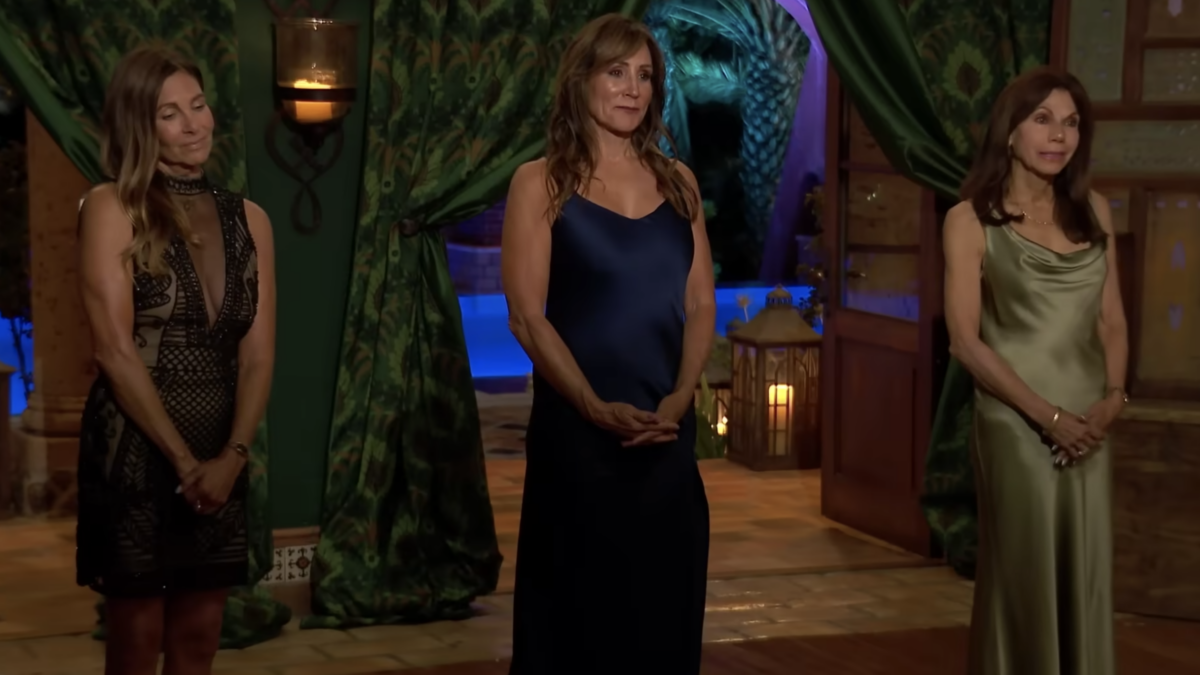“The Golden Bachelor,” the first reality TV show about senior citizens, is a surprise rating hit about traditional values. The newest spinoff of ABC’s 21-year-old “Bachelor” franchise is about dating to get remarried, even after getting a Social Security check. The show has garnered a loyal following among a predominantly conservative, female audience, while liberal critics argue it lacks diversity.
The Golden Bachelor, Gerry (pronounced Gary) Turner, cries constantly over his dead first wife as he has dated two dozen women between the ages of 60 and 75 years old. The show showcases old-school dating, eventually narrowing down the contestants to a final three. Enthusiastic “Bachelor Nation” fans have grown fond of Gerry and the genuine desire of these women to find love and remarry through the show.
With only a few episodes left in the season, the fan-favorite “Women Tell All” episode airs Thursday at 8 p.m. Eastern.
A Hit for Wholesomeness
“The reaction is bigger than anything we could have dreamed of,” Robert Mills, the ABC/Disney executive who oversees the franchise, told Variety.
The old people have gotten huge ratings. It consistently wins Thursday night in the 8 p.m. slot with 4.8 million viewers. The premiere episode reached a total of 11 million viewers, marking the franchise’s highest viewership in two years.
ABC believes the show’s success is a testament to its wholesome depiction of a universal desire for romantic love. Mills stated, “It’s a concept that resonates with everyone. We all yearn for love, and for many, life has second acts.”
Addressing Aging Limits
It’s unclear whether ABC intentionally highlighted the physical realities of aging to connect with an older audience or simply chose not to edit out these realities. Either way, Gerry and the contestants manage limited capabilities due to age as a part of life, rather than an unfortunate fate.
“The Golden Bachelor” doesn’t shy away from depicting common age-related issues, such as the use of hearing aids and reading glasses. The women mostly wear practical, “sensible” shoes.
The show aired a contestant rightly complaining that they made the older women stand for hours while taping long scenes. “Guys? You have people in here 60, 70, and above. Do the rose ceremony in chairs,” 60-year-old Natascha Hardee told the producers.
These scenes make “Golden Bachelor” a standout in reality TV, portraying relatable frailties from age. Even TV news does not show its anchors’ hearing aids and reading glasses.
Taking Pride in Aging
The three women finalists, who have maintained their looks (albeit, with some help from plastic surgery), exude confidence in their appearances. “We may not have the tightest skin or be in the best shape, but we’re far from being done,” said Faith Martin, 61, while wearing a bathing suit.
Widow Theresa Nist, 70, playfully alluded to being dressed in her metaphorical “birthday suit” under her black wrap dress, capturing Gerry’s attention as if he were a teenage boy.
“We are all breaking the stereotypical view of what a senior looks like — or acts like,” Leslie Fhima, a 64-year-old fitness instructor, said. “The women are amazing. Everybody looks really, really good.”
Target for Intersectional Beauty Critics
ABC cast beautiful old people because this is, after all, a primetime entertainment show.
However, The New York Times Magazine took issue with that concept and instead printed a lengthy article titled “Why ‘The Golden Bachelor’ Terrifies Me,” arguing that contestants should be uglier.
The article acknowledges the inherent superficiality in reality dating shows but criticizes plunging older people into this context and then “valorizing them because, perhaps with some nipping and tucking, they can just about fit[.]” It concluded that the show feels “more like a denigration of aging.”
Cosmopolitan magazine, known for trashy photos of supermodels, lamented that these senior citizens are not “body diverse,” which means fat.
“They are also all very, very thin — so thin that I instantly felt embarrassed for having expected ABC to do anything else,” wrote the female author. “The franchise may be shining a light on a new demographic, but if you squint, you wouldn’t know it.”
A “certified clinical sexologist” bashed the show in Time magazine for “reinforcing harmful expectations for people over 60 to be thin, with very few wrinkles, and mostly gray-hair free[.]” She said it’s a problem reflected in the show’s history of lack of diversity. This is, of course, a swipe at the show for past accusations of racism for having white leads. Producers attempted to rectify the show’s image by casting black people and firing its longtime, beloved host Chris Harrison.
The real reason for all the criticism is that the franchise maintains subtly conservative values. The show has stuck to traditional norms about the sexes and heterosexual couples in times when that is a risk to advertisers and media critics.
“The Golden Bachelor” breaks barriers around aging and the enduring pursuit of romantic love during the later years of life. It offers a rare opportunity for families to enjoy a network TV show centered around romance and hope, providing a dose of happiness that is much needed in today’s challenging times.









